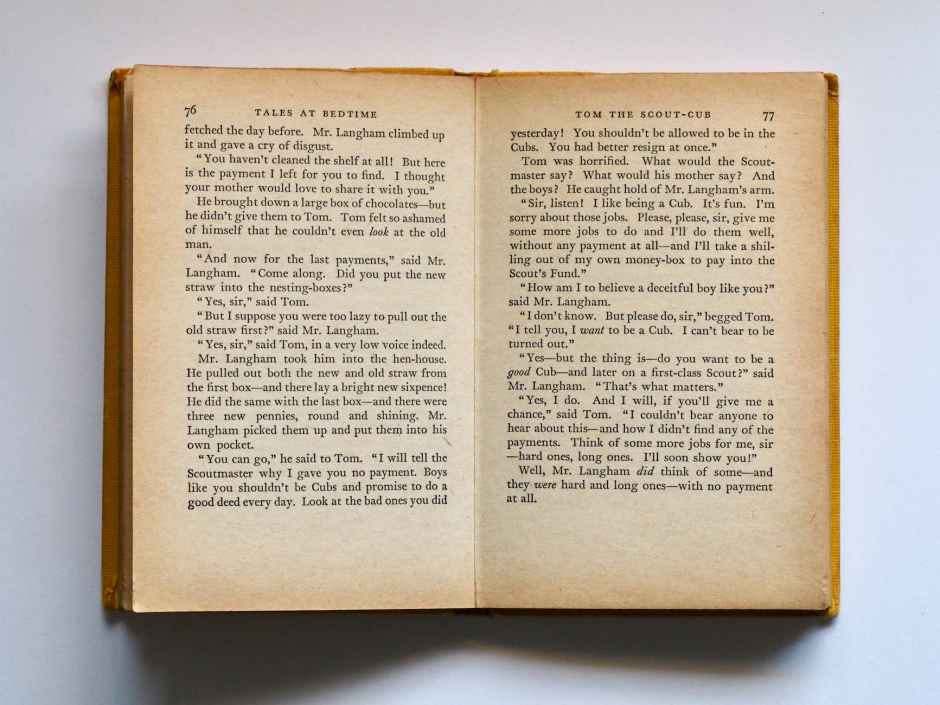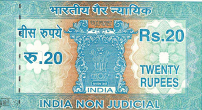“Judicial activism is a necessary adjunct of the judicial function because the protection of public interest, as opposed to private interest, is the main concern.” [1]
– Justice A. H. Ahmadi, the former Chief Justice of India
Today, the judiciary has been taking a more proactive role in interpreting the laws as the polity has grown more complex, and where there are no laws, the court has expanded the application of existing laws to decide on issues that are brought before it for decisions. However, the intellectual elites prefer to use the phrase “Judicial Activism” in recent years to describe their level of unhappiness with the judiciary’s increasing role in India’s legislative democracy. The fundamental focus of the complaint is that the court is running the nation and, in the opinion of some, damaging it through interfering with legislative and executive responsibilities through its orders. One of their defenses is that the courts’ scope for judicial review has been extended as a result of the broadened definition of locus standi, especially when it comes to PIL.[2] This article attempts to demonstrate how judicial activism is a fundamental aspect of the judicial system and develops as a result of several factors. It also tries to investigate if the growing trend of judicial activism could indeed be a cause for concern within the corporate world.
As courts become more actively involved in shaping and interpreting laws, it introduces an element of uncertainty for businesses. Judicial decisions may have a significant impact on corporate operations, regulations, and legal landscapes. For corporations, this increased judicial intervention means they need to stay vigilant and adaptable to evolving legal interpretations. It might also lead to more complex compliance requirements, potential legal challenges, and a need for strategic adjustments in business practices. But judicial activism, when viewed positively, can be seen as a force for justice and societal progress. Rather than being a source of worry, it can contribute to a fair and equitable legal environment.
Democratic politics operate very similarly to a market. It functions best when there is fierce competition among the players, which encourages them to adapt to customer preferences. But when rulers suppress competition and try to bend the norms of political activity in their favour, the system becomes “dysfunctional”. It is essential that all state organs operate within their sphere of responsibility inside the framework of our constitution, which places a premium on the separation of powers. A few intrusions may occur, but that is to be expected when the “domains overlap” and the invisible line of control is quite hazy.[4] However, the argument that the judiciary is running the country and, in the opinion of some, damaging it by dictating policy to the executive branch is couched in idealistic thinking that ignores the “real-world pressures” that drive judicial decisions.
The best case to illustrate this point is the Supreme Court’s well-known ruling in the Vishakha case[5], where the court had set down regulations to safeguard women from sexual harassment at work after being horrified by the rising number of crimes against women and the lack of adequate legislation. In a typical instance of judicial legislation, the judges established a law and endeavoured to enforce it, but they also made it clear that the rules would only be regarded as law until the legislature enacts a proper statute on sexual harassment. This occurred in 1997, and until a decade of this judgement, our politicians had not passed a legislation on the matter! If the Supreme Court’s method was “appropriate” or whether “judicial excess occurred” is a matter that demands an answer from the critiques.[6]
The question of “judicial activism or overreach” must thus be examined in its political setting. The “public’s confidence in and credibility” with the political elite has reached an all-time low today. Anyone can see how “cynical” the public is becoming and how the political elite has failed miserably to live up to expectations. The courts must step in to uphold the grandeur of the law as it must be upheld under such circumstances, and the public’s weakening trust in justice must be preserved. It is correct to note that the “inaction” of the other branches of the state in most instances leads to what is termed “judicial activism”.
The “executive class’s lack of compassion” and “indifference” cannot be ignored by the courts of justice. When the court is informed of and satisfied with grave abuses of fundamental human rights, it cannot throw up its hands in defeat” and turn a blind eye. The judicial system cannot dodge or delay decisions. Citizens who believe the legislative is unresponsive and the administration is uncaring would descend on the streets if the judiciary closed its doors to them, which would be detrimental to both the rule of law and the democratic operation of the state. Hence, it’s safe to say that the judiciary in our nation has and must consistently stand up for democracy, democratic principles, and constitutionality. [7]
The extended notion of “locus standi” concerning “PIL”, critics claim, has occasionally broadened the jurisdictional scope of courts conducting judicial review. However, it’s crucial to realize that the Supreme Court has created this tool that allows it to consider issues, particularly unconventional and unpopular ones pertaining to the poor, the underprivileged, and the deprived who, in the absence of a platform, to seek redressal of their grievances. They now have immediate access to the supreme court. This is the public interest litigation or social action litigation instrument, according to Upendra Baxi. Numerous topics, including “bonded labour”, “prison conditions”, the “education of prostitute’s children”, etc., have been examined by the Supreme Court as a result of PILs.
Not only that, but there have also been cases involving the pavement in Mumbai (Olga Tellis v. Bombay Municipal Corporation[8])”, Delhi hawkers and street vendors (Saudan Singh v. NDMC & others[9]), free and mandatory education for all children, and the eviction of people from their natural habitats as a result of enormous civil projects (dams, etc.). The court has demonstrated foresight and a progressive agenda in this regard. It has aided such underprivileged people in their endeavors to achieve some measure of justice and dignity. According to Baxi, “activism” has helped to “defend, promote, and preserve human rights” as well as “redemocratize the Indian polity.”.[10]
One of the main justifications for exercising restraint in judicial orders is that judicial activism may negatively influence the independence the judiciary enjoys, according to Justices AK Mathur and Markandey Katju, whose comments on this drew a lot of public attention. As stated by the judges: “The lesson of this tale is that politicians and others will inevitably respond if the court does not show discipline and overstretches its bounds. When this happens, politics will intervene and limit the judiciary’s authority or even its independence.” But are they really advocating judicial restraint or literally calling for a “submissive judiciary”?[11] The social, economic, and political facets of justice” should, in theory, be left primarily in the hands of legislators, and it should be assumed that the “entire legislative process influenced by ideas of justice, reason, and fairness. But as was previously mentioned, idealism is regrettably ineffective in a society that is rife with entrenched interests, corruption, and poverty. Consequently, it only seems sensible that the court plays a relatively proactive role in interpreting the true meaning of the law in the greater advantage of the public. [12]
The ‘Basic Structure Doctrine’s’ usefulness is also disputed by academics because of its anti-democratic underpinnings. It is true that a constitutional tool for reform is required for the Constitution’s orderly development, which leads to the process of constitutional amendment. But there is always a chance that the government might abuse its power and become an autocratic tyranny when it is endowed with such unchecked power. For some, it might be acceptable to utilize the amending authority to make appropriate adjustments in order to fulfil the promise made by the enlightened luminaries who serve as the people’s representatives in constituent bodies. However, it would be abhorrent and unequivocally condemnable to seek to utilize such a process to repeal or overturn the Constitution’s fundamental foundation. Indeed, one can even view the situation as a great hoax against the people who gave themselves this Constitution.[13]
It will be a show of submission to the whims of majoritarianism if a constitutional change is blindly accepted with the broadest possible significance. The current legislature may abuse its power to violate the Constitution due to “individual”, “group”, and “institutional interests”. Since history has repeatedly shown that unlimited power leads to absolute corruption, allowing it to act arbitrarily, as was shown during the declaration of a national emergency in 1975, would effectively entail legitimising “constitutional hara-kiri”. Therefore, it’s crucial to implement certain protections, such as refraining from arbitrary or superficial constitutional amendments.[14]
As Justice Chandrachud had exquisitely laid down,
“Amend as you may even the solemn document which the founding fathers have committed to your care, for you know best the needs of your generation. But, the Constitution is a precious heritage; therefore, you cannot destroy its identity”.[15]
Then criticisms also raise the question of how an unelected entity like the court can have such authority when the legislative majority reflects the will of the people. It is important to understand that in India, even without obtaining a majority of votes, a party or coalition of parties can win a legislative majority and establish the government. The logic goes that such a “coalition” shouldn’t be permitted to change the “fundamental provisions of the Constitution”, which the Constituent Assembly enshrined after extensive discussion and debate.
The parliament has occasionally veered off course and begun misusing the amending powers given to it in the past and even in the present. The Indian Constitution is a wonderful gift to “We the People,” but the Parliament has abused it to forward its own agenda at the expense of the will of the populace. Due to the amending power granted by Article 368, the Parliament made several unfavourable adjustments.
The internal emergency declared by Indira Gandhi in 1975, after she had been unseated by the Allahabad High Court for violating an electoral law, helps to the judiciary’s success in addressing the aforementioned issue. The 39th Constitution Amendment Bill was passed in part to overturn this decision and in part to preserve more authority for the Parliament. In Indira Gandhi v. Raj Narain[16], this amendment was contested on the grounds that it upset the Constitution’s fundamental structure. Although Indira Gandhi’s election was affirmed based on merits, the Supreme Court invalidated the amendment on the grounds that it was incompatible with the fundamental principles of the Constitution. Another justification for the court’s activism’s validity was this verdict.[17] The “poor and disenfranchised”, for whom the legal system is their final line of defense, would prefer that it be “more activist”.
Today, it is believed that the Supreme Court, rather than the Parliament or the government, is more sympathetic to the concerns of the oppressed and more indicative of a consensus in a multicultural society made up of many “cultures”, “traditions”, and “competing interests”. The former two are seen to be split by “casteism”, “regionalism”, and “communalism”, and are “political and opportunistic”, but the court is thought to be relatively more unbiased and above these difficulties.[18]
Critiques also claim that the term “basic structure” has a very broad definition and that not defining it would contradict the point of having one. Although it is true that the term or the phrase basic structure has not really been defined by the courts, but the judiciary has repeatedly provided the fundamental components that make up basic structure. It’s also critical to keep in mind that constitutional provisions cannot simply be separated into those that express rights in general terms and those that express non-rights in particular terms. It should not come as a surprise that such characteristics exist. Any regulation must be somewhat general or broad, and the wording of the constitution is under special pressure to be as broad as possible.
In a similar line, generality encourages the longevity of constitutions. Due to the intricacy of governance, it would be challenging to properly define all of the government’s powers even if it were wanted. Because of this, constitutions are full of ideas that are expressed in general or abstract words and to which judges are required to add further elements, even in matters of structure.[19]
As a result, we might draw the conclusion that judicial activism in India covers a legislative gap. Judicial activism strengthens democracy and restores the confidence of the general public in the rule of law. But at the same time I do agree that judges must strike a delicate balance between activism and excessivism while still becoming activists which means that they must try to refrain from taking on subjects that, although being urgent, are outside the purview of the court. The practice may be broadened, but it should stay within the boundaries of the courts. They must only be “activists”.[20] In the words of Upendra Baxi, too little activism would signify under-enforcement of constitutional notions of good governance, rights, and justice. Too many results in over-enforcement of these ideals, imperiling the legitimacy and efficacy of judicial power.
REFERENCES:
[1] A.M. Ahmadi, Judicial Process: Social Legitimacy and Institutional Viability , 4 S.C.C. J. v.1, 1-10 (1996).
[2] SK Patnaik and Swaleha Akhtar, JUDICIAL ACTIVISM IN INDIA : MYTH AND REALITY, 58 Indian Journal PS 88, 79–92 (1997)
[3] Shouvik Kumar Guha & Moiz Tundawala, Constitution: Amended it Stands?, 1 NUJS L. Rev. 533 (2008)
[4] Sidharth Sharma, Myth of Judicial Overreach, 43 Economic and Political Weekly 17, 15–18 (2008)
[5] 1997 ALD CRI 2 604
[6] supra note 4
[7] A. S Anand, , JUDICIAL REVIEW – JUDICIAL ACTIVISM – NEED FOR CAUTION, 42 Journal of the Indian Law Institute 157, 149–59 (2000)
[8] 1985 SCC 3 545
[9] 1992 AIR SC 1153
[10] Ravi P Bhatia, EVOLUTION OF JUDICIAL ACTIVISM IN INDIA, 45 Journal of the Indian Law Institute 267, 262–74 (2003)
[11] supra note 4
[12]Id.
[13] supra note 3
[14] Id.
[15]Kesavananda Bharati v. State of Kerala, (1973) 4 SCC 225.
[16] 1975 AIR SC 2299
[17] Id.
[18] supra note 10
[19] Adrienne Stone, Judicial Review without Rights: Some Problems for the Democratic Legitimacy of Structural Judicial Review, 28 Oxford JLS. 1, 9 –10 (2008)
[20] supra note 10











